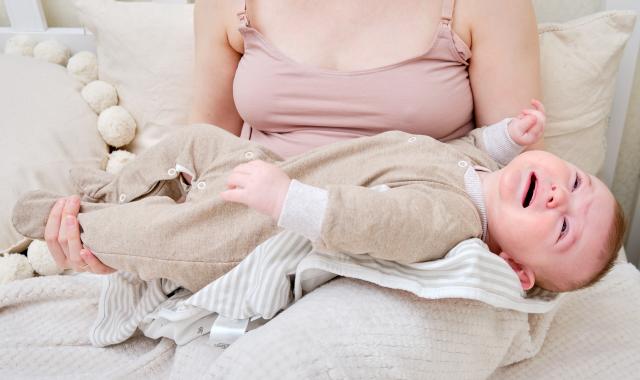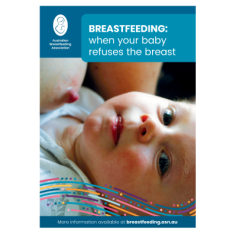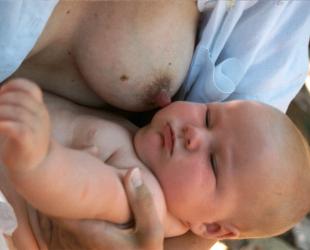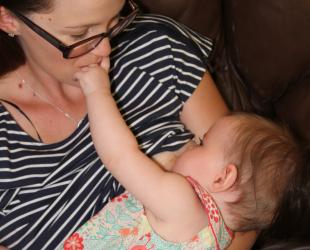Baby not taking the breast?

There are many reasons why a baby may not want to feed, depending on their stage of development or health. No matter the cause, it can be very upsetting. You may even feel rejected by your baby’s behaviour.
A baby may refuse the breast at some or all feedings and at any age. Refusal can also look different depending on the reason. Baby may suck for a few minutes, then break away with signs of distress and refuse to continue. They may refuse even to begin sucking although they seem hungry.
Below are some of the main reasons that babies refuse to feed. If you can identify a cause of your baby's refusal, then you can usually find a solution.
Sometimes baby refuses because they don't feel good
They might be:
sick with a cold, earache or sore throat that makes sucking uncomfortable
teething
too tired to feed
in pain when held in a certain way, such as when they've had their immunisations
uncomfortable in hot weather
distracted
not hungry because of other food or drinks.
Sometimes baby refuses because of the milk flow or amount
Your milk comes out too quickly.
Your milk flow is too slow due to low supply, stress or hormonal changes.
Baby isn’t used to working for the milk when the let-down slows.
Baby is confused by bottle feeds.
Sometimes it's to do with mum
Your milk tastes different due to unusual food, medication or hormonal changes. Some mums report milk is saltier when they have an infection.
You may smell different eg different perfume, hair products, chlorine/ salt from swimming.
Your supply may be less than normal because you are sick.
Is it really breast refusal?
Think about the following questions. They may let you know that all is well and that even though your baby is refusing some feeds, they are contented and healthy and getting enough breastmilk for their needs. If you are still worried however, have your baby checked thoroughly by your doctor.
The number of feeds your baby needs changes as they grow older. A very young baby commonly needs 8 to 14 breastfeeds in 24 hours, but there is a wide variation in the number of feeds an older baby needs. There is a big difference between a four-month-old who refuses one or two feeds in eight, and a baby of the same age who refuses four out of five feeds.
Your baby's nappy output can tell you whether their refusal is impacting on their breastmilk intake. Check the signs that your baby is getting enough.
Sometimes, a baby doesn’t actually refuse but is very fussy and difficult to feed. They may be unwilling to start sucking and take a long time to get going, but once they start, they feed well. A fussy baby mightn’t seem very keen to feed. They suck for a short while and then break away, finishing the feed after a series of stops and starts.
Your baby may be easily distracted and restless during the feed, perhaps pushing away from you with their fists or feet. They stop feeding as soon as their hunger is satisfied and may remain restless and fidgety afterwards.
As babies get older their feeding patterns change. You may be used to your baby feeding frequently but now they want feeds less often. Older babies can take more in at each feed and may not be hungry when you decide to feed.
Introducing solids can also mean that your baby may not be as hungry. If you think breastfeeds are reducing too much, you can try holding back on the solids or breastfeeding before solids. Breastmilk is the most important source of nutrition for your baby in the first 12 months.
Sometimes we can’t find a reason
Just as suddenly as your baby starts refusing, the whole episode is over and they are happily breastfeeding again as if nothing had happened.
Be reassured, your baby's refusal to feed isn’t personal. Your baby still loves you and needs you. Most breast refusal is temporary. There are many steps you can take to encourage them to feed again.
© Australian Breastfeeding Association April 2022
Read more about breast refusal




